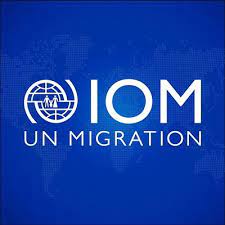A delegation from South Sudan’s Civil Registry Directorate in the Ministry of Interior yesterday traveled to Khartoum to learn about Civil Registry and Identity Management from their Sudanese counterparts.
The visit is intended to provide an opportunity for members of the Civil Registry’s Technical Working Group (TWG) to enhance their knowledge on the operational aspect of Civil Registration including Identity Management to contribute towards the establishment of guidelines on Identity Management in South Sudan.
The visit is organized by the International Organization for Migration (IOM) South Sudan mission in coordination with the IOM mission in Sudan within the framework of the ‘Technical Support to the Civil Registry Department’ project funded by the Government of Japan.
Sudan was selected not only because of its shared history with South Sudan; it is also known to have a strong civil registry and identity management systems within the East African Community (EAC).
Leading the delegation, Major General Daniel Manyang, expressed his appreciation to IOM and the government of Japan for supporting the visit and said it will help improve the management of essential and vital facts of citizens and residents. He also said it will help address issues related to the lack of personal identification systems of citizens, stateless persons, and foreign residents.
“Cooperation between South Sudan and Sudan is very important, and we look forward to exchanging good practices and tapping into the experiences and lessons learned from our counterparts – lessons that we look forward to implementing when we return,” Gen. Manyang said.
The delegation will visit the headquarters of the Directorate of Passports and Civil Registry, Ministry of Interior in Khartoum and will hold a series of meetings with authorities and technical experts working in the area of civil registry and identity management.
Peter Van der Auweraert, the Chief of Mission of IOM South Sudan, said, “IOM is committed to supporting the government of South Sudan in improving its civil registry and identity management towards an effective, robust and internationally compliant system that will help improve citizens and residents, including migrants, access to services and protection, and allow citizens to exercise their civil rights.”




